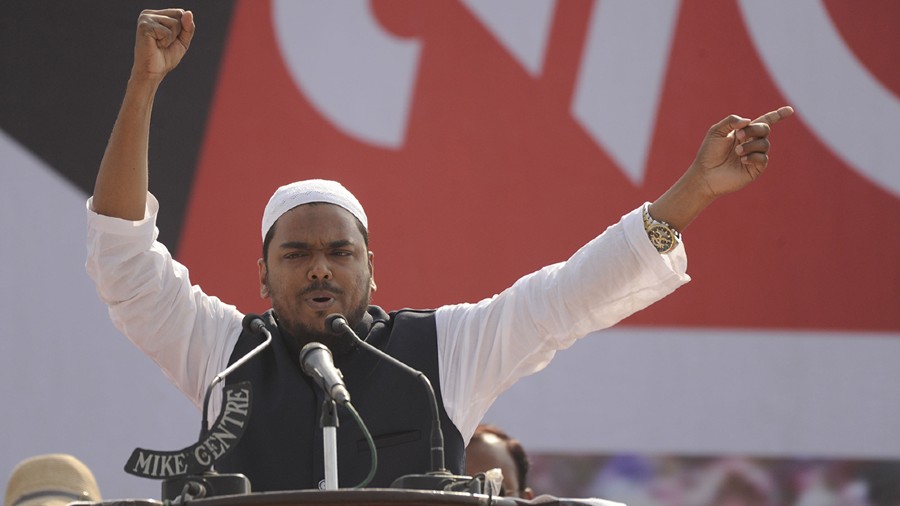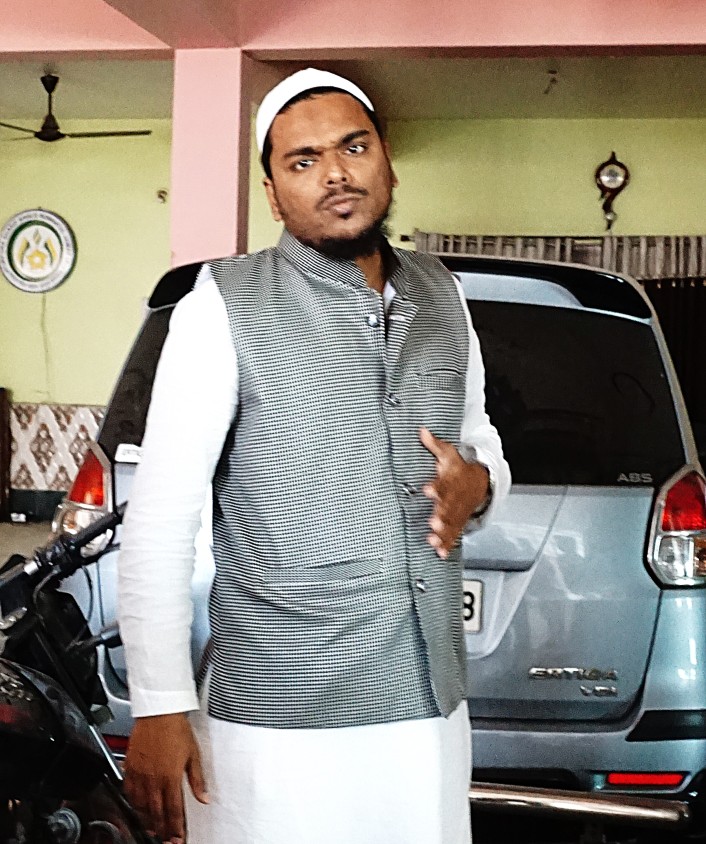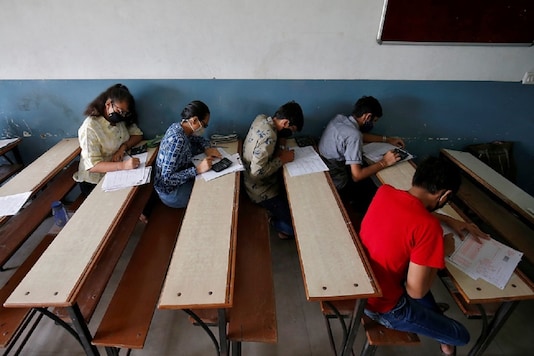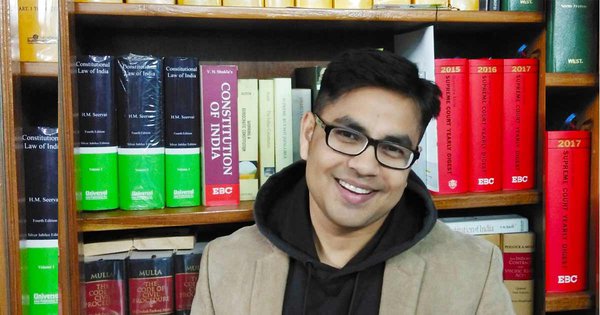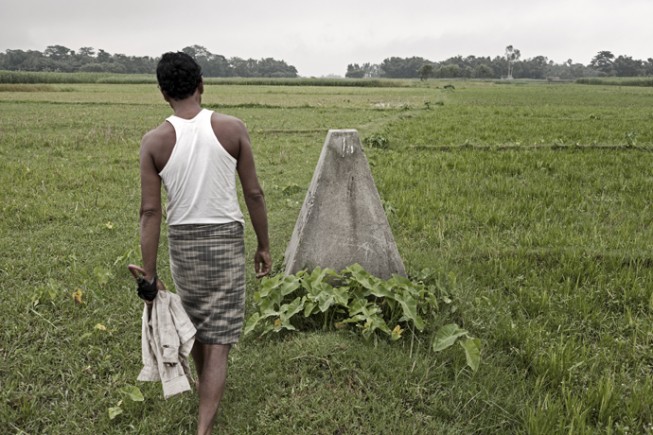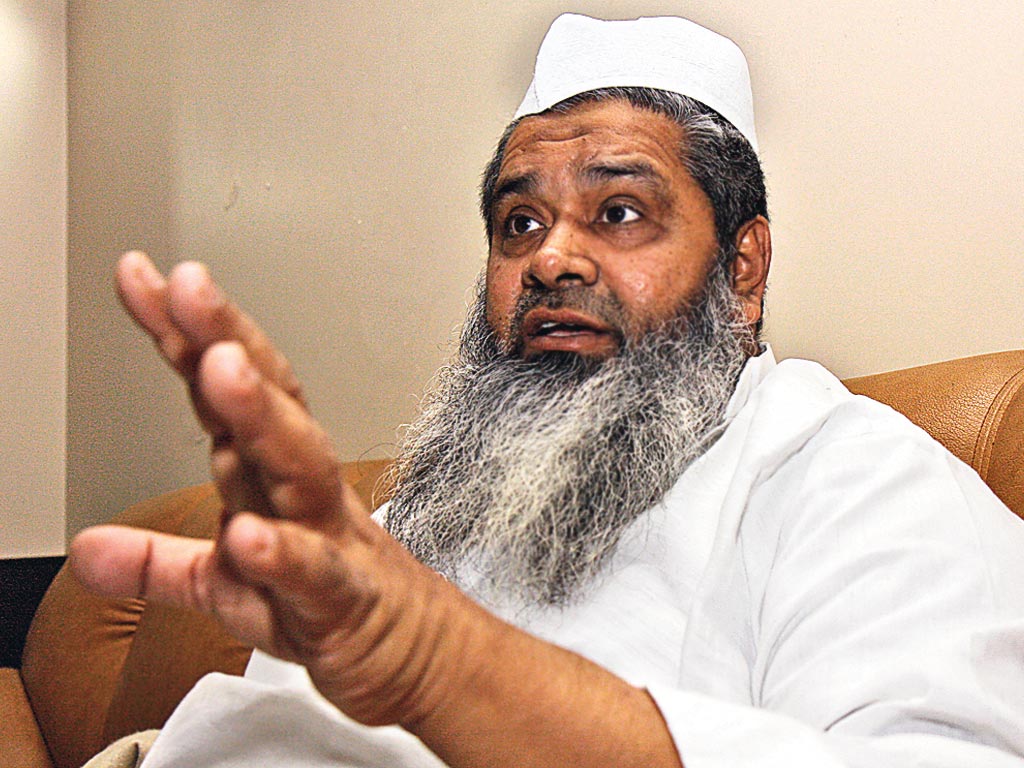Chakla Village (Bongaigaon District) ASSAM / London, U.K :
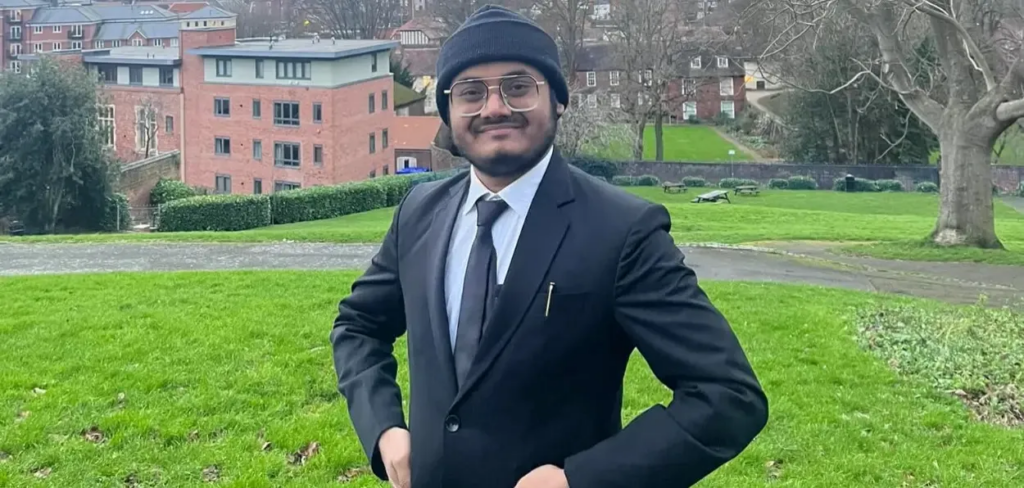
Elias Hossen Ansari in London
A madrassa student has smashed the myth about education in Islamic seminaries. Elias Hossen Ansari of village Chakla in the Bongaigaon district has secured his dream job; he has been appointed a paralegal officer at an Oyini firm in London, United Kingdom.
Elias Hossen Ansari comes from a financially poor family. His parents sent him to a small madrasa in the nearby Bajali district from where he completed his Hifz (Quranic study) course followed by the Maulana course.
As luck would have it, the Ajmal Foundation picked him up in Hojai for regular academic studies. He obtained his Bachelor of Laws degree from the University of Science and Technology Meghalaya (USTM), Meghalaya close to Guwahati, and later a Master of Laws degree from Jamia Millia Islamia, Delhi. Elias excelled in all the examinations he wrote.
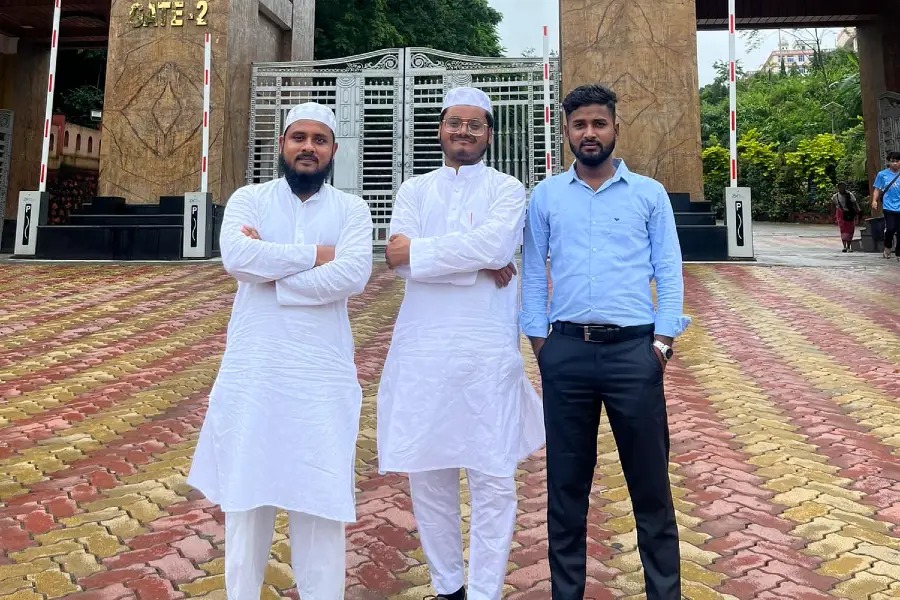
Elias Hossen Ansari (Center) with classmates at the USTM
However, Elias did not end his higher education with Jamia Milia. He explored chances of securing a legal job in London, the city of his dreams. To raise money for his education, Elias taught religious prayers (Tarawih) at the Station Mosque in Rangia near Guwahati every year during the month of Ramazan. This also helped him revise his leaning at Madrassa.
“Besides, I believe that the Almighty has always guided me to the right path in pursuing my dreams because I have always served Him the way He has commanded,” Ansari told Awaz – The Voice joining in from London on an internet conversation.
Ansari shifted to London nearly two years ago to pursue higher studies in international law and has since been also performing as an imam leading the Friday congregation and other prayers in local mosques along with his studies.
On January 23, he joined as a paralegal officer at Barristers and Solicitors Legal Firm and AA Homes and Housing Ltd in London on a salary that his peers back home can only dream of. His annual emolument comes to around ₹37 lakh Indian Rupees.
“I’m happy that my prayers have been answered! My job here will be to assist the barristers, and solicitors, and other seniors in drafting and pursuing various legal matters, including those of immigration, visa, and a lot of other things … Migrating to England is not so easy for someone like me who hails from a middle-class family, because the cost of living here is exceptionally high. I’ve never left any stone unturned to find sponsorship for my stay in the UK which is very essential, and finally, I’ve got a permanent sponsorship by the grace of God,” a beaming Ansari said.
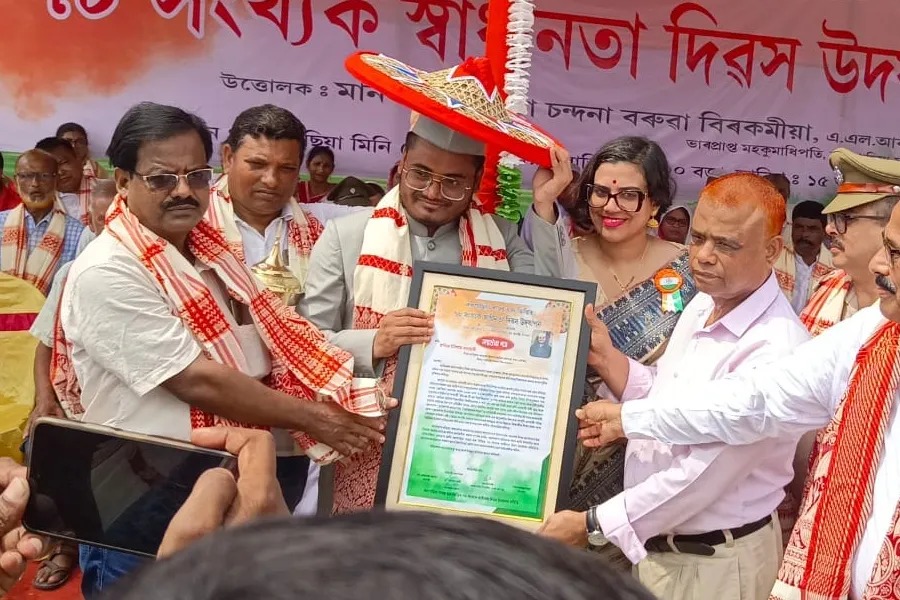
Elias Hossen Ansari being felicitated on Independence Day at USTM
Asked if his initial madrasa education posed any hurdle in chasing his dream, Ansari said: “Not at all. Nowhere, neither in my own country India, nor abroad. I’ve travelled to around 20 countries on study tours, and I’ve never come across anything as such … I am grateful to the makers of our Constitution where Articles 29 and 30 guarantee freedom of education of one’s own choice even for minorities. Here, in London also, I face no hurdle in offering five times Salah a day reciting the Holy Quran, or following my religious commandments. What I’ve seen in my life is that everyone is free to follow his/her faith. In this respect, India is the greatest country as far as peaceful coexistence is concerned.”
He also said that he does not believe in the narrative that madrassas are breeding grounds for fundamentalism or radicalism. “Religious educational institutions are no different from modern educational institutions, except that there are few extra subjects in religious studies which help in holistic development of students. And, no religion teaches hatred or violence. Religion always teaches love and compassion. So, I don’t believe in such negative narratives,” Ansari said, adding that there happen to be moles in every beautiful thing, but that should not be generalized.
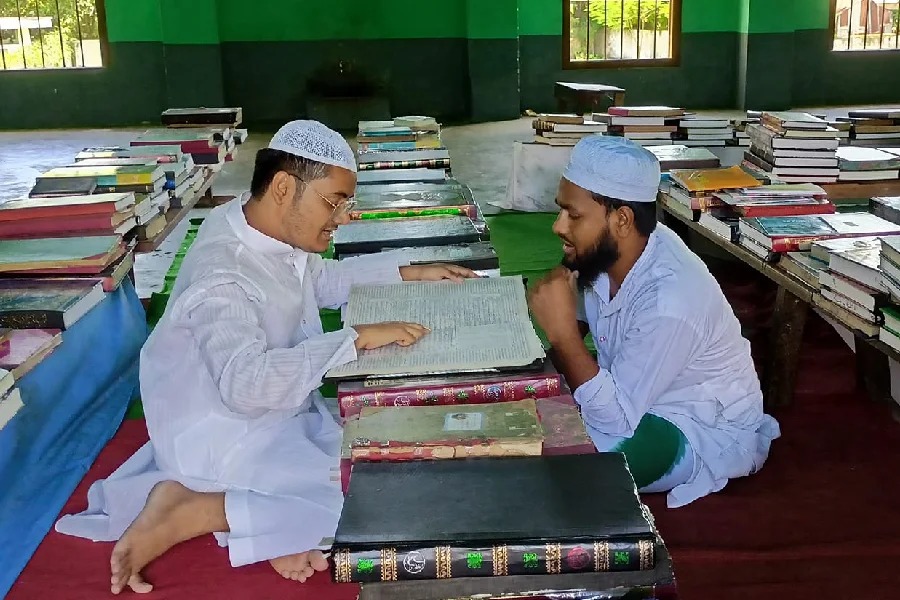
Elias Hossen Ansari during his Madrassa days
About his life’s struggles to pursue such higher education, Ansari said: “I am grateful to many people, including (chairman of Ajmal Foundation Badruddin) Ajmal Saheb, (USTM Chancellor) Mahbubul Hoque Sir, (USTM academician) Baharul Islam Sir and many others whom I can’t name because they don’t want me to name them in public, but have helped me a lot. It would not have been possible for me to dream so high without their benevolence. I’m always grateful to all who have helped me so selflessly. Besides, I believe in the philosophy of greats like Napoleon Bonaparte and Dr APJ Abdul Kalam that everything can be achieved through hard work and perseverance, which helped me a lot.”
This is not the end of Ansari’s dream though. He has even higher dreams – to serve the people among whom he grew up. “Everybody asks me the same question; will you ever return to India or Assam? I’ll return and I nurture a hope to serve my people back home. I want education to spread in our country. I want to set up accessible and affordable schools and colleges in my country. I want colleges and universities in every town and district of our country. I’ll certainly go back and work for the people of my land,” he said.
Asked what he would like to suggest to the younger generation to pursue difficult dreams like himself, Ansari said: “The only way to success is hard work and burning midnight’s oil. Read the biographies and autobiographies of great people, you can draw all the inspiration. All the great people, including Mahatma Gandhi, Pt Jawaharlal Nehru, Dr APJ Abdul Kalam, and others have worked exceptionally hard to be such great leaders. Everything is possible if you persevere to achieve it and keep focus.”
source: http://www.awazthevoice.in / Awaz, The Voice / Home> Story / by Imtiaz Ahmed, Guwahati / January 27th, 2025
